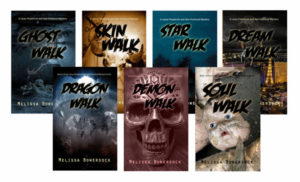 From the IU mailbox:
From the IU mailbox:
I love your advice about motivation, writing every day. Nevertheless, I finished the first draft of my novel last year and have been editing/rewriting it ever since. The 2-part question is: 1. When you say to write every day, how much does editing impinge on the time for writing, or does editing and writing count as the same thing, at least as far as the advice goes? 2. If I should be working on a new writing project to keep the writing juices flowing, how can I keep focused on finishing the editing of the first one as well, and not let it be just another abandoned project?
I believe this is a common issue with writers: how do we balance the many aspects of our work? Obviously we can’t simply write creatively all the time; once we’ve finished our first draft, the project still requires much tweaking and noodling. And does that tweaking and noodling “count” as writing? I’ll tell you how it all shakes out for me, and you can give us your take on it in the comments below.
When I retired from my day job four years ago, I had no plan for how my days would be structured nor how I would manage my writing inside the new “free time” of my ordinary life. Luckily, as often happens, having no plan meant that my schedule evolved organically out of my own energy level, my desires, and the needs of daily life. After four years, this is how it has shaped up, and this is what works for me.
I have high energy early in the day, so I devote my mornings to (daily life) running errands, doing housework, walking the dog, hiking, (writing life) editing, researching, blog posts, and rewriting. These are the times when my brain is attuned to goals, to tackling problems/challenges and solving them. To handling and crossing off things on my list. And it uses a completely different mindset than regular writing.
My afternoons are for writing — real writing. That’s when everything else fades away and I work solely on my latest WIP. This is the time when my analytical brain takes a siesta and my creative brain is let off-leash to gambol and play. This is when I’m reeling out the possibilities — if my character goes here, what will happen? If s/he does that, what will happen? — and I’m choosing the path of my story by jumping from one stepping stone to another. There are no goals, no lists, no errands except to go where the story goes, for as long as it goes. Or dinner time, whichever comes first.
 So how do I handle the different phases of the multiple books I’m working on at any given time? That whole thing has sorted itself out, as well. For the last fourteen months or so, I’ve been writing a paranormal mystery series. It didn’t start out to be a series, but it sure ended up one, so as long as the ideas keep coming, I’ll go with it. Last year I published seven books in twelve months. This year is already shaping up to be the same. I’m currently working on Book 10 of my series, and already jotting notes for Book 11.
So how do I handle the different phases of the multiple books I’m working on at any given time? That whole thing has sorted itself out, as well. For the last fourteen months or so, I’ve been writing a paranormal mystery series. It didn’t start out to be a series, but it sure ended up one, so as long as the ideas keep coming, I’ll go with it. Last year I published seven books in twelve months. This year is already shaping up to be the same. I’m currently working on Book 10 of my series, and already jotting notes for Book 11.
How do I juggle them? I just released Book 7 a couple of weeks ago, and I’ve already finished my first promo push for it. Book 8 is out to a few beta readers while my cover designer is working on the cover. Once I get that and the feedback from my betas, I’ll make my last corrections and then I can release that one. In the meantime, I’m typing up Book 9. I handwrite my books, so once they’re written, I have to type them up. When I’ve got Book 9 all typed up, it will go out to betas and my cover designer. All of these tasks go in the morning half of my day, and the afternoons are devoted to writing on Book 10.
I guess it’s a good thing I’ve never been terribly single-minded. I like having lots of varied things to do, and I like being able to jump from one to another without getting bogged down in one. I’ve found I can do a little bit of many things during my busy mornings, and eventually it all gets done. I won’t lie; there are times when it feels overwhelming, but if I keep chipping away at the various tasks, I do get them completed at some point. I may not progress at breakneck speed, but I make progress on all of it every day, even if it’s just a little bit.
How do I stay focused while working on three books at once? Again, it’s a matter of using a different mindset. The grunt work — editing and rewriting — is done with the morning brain that loves to keep track of how many times I use the word “just” or what the heck I named my tertiary characters. The actual creative writing is all done by the afternoon brain, which knows it has no limits, no boundaries, and can run as far and as long as it likes. Two separate brains, two separate methods of working, two separate ways of getting things done. And because they are separate, they never bleed one into the other.
I hope that answers your question, or at the very least gives you ideas on how you might structure your day and workload to accomplish all your goals. If anyone else wants to chime in on what works for you in the comments below, please do. After all, there’s no one right way to do this amazing thing we do. It’s as individual and as special as each one of us.

Thank you Melissa. Excellent advice. I try to do something similar, but I’m not nearly as organized about it. I enjoy writing in the middle of the night sometimes. It just seems right. I also know that if an idea comes to me, if I don’t try to get it written down, I won’t remember it later.
The “just seems right” comment is the crux. I think we have to take advantage of those times when our brain works best and is the most creative; those are the times we can sink more easily into the flow. The first step is to identify those times (you did); next step is to use them to the max! Thanks for commenting.
Mornings are best for writing, no matter what kind I’m doing–it’s when I’m freshest and most alert. I save mundane chores for the afternoon, when I don’t require so much brain power. Used to be I could work almost any time of the day or night, but chronic illness set in, presenting me with certain limitations. The important thing is that I make time to write when I’m feeling well enough to accomplish the task. Regardless, it’s a juggling act for all of us.
Thanks, Melissa, for sharing your writing process.
So we’re exact opposites! Isn’t it funny how one way works for some, another way for others? We all just have to find what works best for us. Like everything about this very inexact science, it’s all personal preference.
lol – I loved reading about your schedule, Melissa. I used to be a night owl and all my important work seemed to happen after everyone else fell asleep. These days, with retirement looming [yay! can’t come soon enough] I find that creative stuff has to happen in the morning when my brain is fresh, afternoons are okay for editing and evenings are for collapsing in a heap. Housework and all the other life demands get slotted in wherever and whenever I have the energy. Sadly, my days of being a night owl are long gone.
I know the feeling. I think we were all night owls once, when we were young. No more! Now I get up early, go to bed early. And, yes, retirement is wonderful! Of course we’ll never retire from writing, but the rest is great. I’m sure you’ll figure out a new post-retirement routine that works best for you.
My writing schedule has always evolved naturally, depending on other projects, time of year, and sailboat racing season. I have never had any success in forcing myself to do anything. So I do whatever project needs doing whenever time allows.
The unfortunate result is that I don’t schedule any rest time, either. I always tell my friends, “Working for myself is the toughest boss I ever had.”
I think you and I share being undisciplined; I can’t force myself to do anything either. Luckily, we *want* to work, and luckily it never feels like work. Love this life!
This is why you’re not just good at writing, but good at publishing and planning. I was so happy once I discovered that morning was a time I could write, that I never discovered that time for the business side of writing. This is fine as long as I’m just writing for just myself, but that’s like singing in the shower. Of course it sounds good, right?
Right; writing and publishing for indies today is a broad-based enterprise that requires all kinds of time for the various aspects of a project. Some writers are dismayed at the many hats they must wear, but once we get used to the idea, we can make the best use of our time and move forward to a satisfying completion of our project.